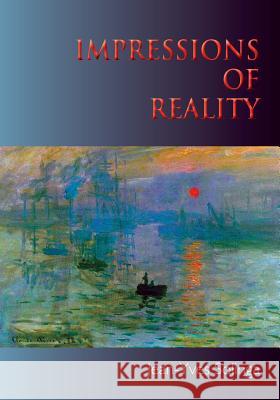Impressions of Reality » książka
Impressions of Reality
ISBN-13: 9781935656241 / Angielski / Miękka / 2013 / 152 str.
"Impressions of Reality" is Jean-Yves' 6th book of poetry, and in the words of W.F. Lantry, "Jean-Yves Solinga embraces the world with clear-eyed enthusiasm. There is a kind of joy in these poems, tempered by hard-edged vision. The laughter of women, the art of ship building, music and philosophy, all find their natural place within Solinga's lines. Solinga casts a cold eye on the past, and uses it as a prism for outlining an absolutely modern present. He manages to make the unraveling of complex knots simple, but doesn't destroy them- he helps us understand how they're woven. Even the death of Custer takes its place beside the heroism of the Maquisards. All their translucent fibers are woven into a cloth of the fragile past. In Solinga's hands, grammar doesn't simply transform speech; it transforms lives, and in doing so refashions the future. This is what poets do: He sees the whole edifice, details it, helps us understand, and convinces us it's worthwhile. And it's all done with the delicacy and beauty of interwoven lace. With the history of poetry and painting behind him, Solinga walks alone through the parallel columns of love and beauty, confident, dexterous, sure footed, almost dancing. His meanings are dappled, like the fields of Provence, like the slopes of Mt. Sainte Victoire. And yet the poems are splendidly fragile, surprising, simple and intricate at once. He's disinclined to celebrate Pharaohs, instead he celebrates the workers who built the pyramids with their own hands, and left something of themselves in those long shadows. He values each moment, and sees eternity, not in an hour, but in a single second."
"Impressions of Reality" is Jean-Yves 6th book of poetry, and in the words of W.F. Lantry, “Jean-Yves Solinga embraces the world with clear-eyed enthusiasm. There is a kind of joy in these poems, tempered by hard-edged vision. The laughter of women, the art of ship building, music and philosophy, all find their natural place within Solinga’s lines. Solinga casts a cold eye on the past, and uses it as a prism for outlining an absolutely modern present. He manages to make the unraveling of complex knots simple, but doesn’t destroy them- he helps us understand how they’re woven. Even the death of Custer takes its place beside the heroism of the Maquisards. All their translucent fibers are woven into a cloth of the fragile past. In Solinga’s hands, grammar doesn’t simply transform speech; it transforms lives, and in doing so refashions the future. This is what poets do: He sees the whole edifice, details it, helps us understand, and convinces us it’s worthwhile. And it’s all done with the delicacy and beauty of interwoven lace. With the history of poetry and painting behind him, Solinga walks alone through the parallel columns of love and beauty, confident, dexterous, sure footed, almost dancing. His meanings are dappled, like the fields of Provence, like the slopes of Mt. Sainte Victoire. And yet the poems are splendidly fragile, surprising, simple and intricate at once. He’s disinclined to celebrate Pharaohs, instead he celebrates the workers who built the pyramids with their own hands, and left something of themselves in those long shadows. He values each moment, and sees eternity, not in an hour, but in a single second.”











